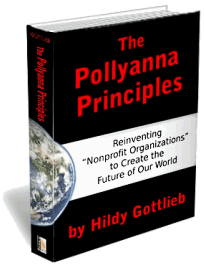 A few months ago a friend from DC, Alex Budak, called me about a social enterprise he was starting called StartSomeGood. The idea, simply put, was to create a crowdfunding (or peerfunding) platform for social change initiatives. He wanted to know if I wanted to be involved in an advisory capacity, helping him design the communications and outreach strategy for the company. I was happy to agree, both because I’m always up for helping a friend and because the idea itself was compelling. While the crowdfunding model has been proved by sites such as Kickstarter and FundBreak these sites are exclusively for creative projects. There is a clear opportunity and a need to provide this service to the social sector.
A few months ago a friend from DC, Alex Budak, called me about a social enterprise he was starting called StartSomeGood. The idea, simply put, was to create a crowdfunding (or peerfunding) platform for social change initiatives. He wanted to know if I wanted to be involved in an advisory capacity, helping him design the communications and outreach strategy for the company. I was happy to agree, both because I’m always up for helping a friend and because the idea itself was compelling. While the crowdfunding model has been proved by sites such as Kickstarter and FundBreak these sites are exclusively for creative projects. There is a clear opportunity and a need to provide this service to the social sector.
Over the past few months I’ve been working with Alex to refine the vision and product. Over this time I have felt myself get more and more drawn in, and more and more excited about the potential of the project. We have refined our model to make it more distinct and, we think, better adapted for the sector we seek to serve. We realized that success would require more than just advice; Alex needed a collaborator equally-committed to the success of the enterprise. And so I’m really excited to announce that I’m joining as a full co-founder with Alex, and that we should be launching our site next month.
Why launch StartSomeGood.com?
There are so many people with ideas for how they want to make a difference in the world, yet they lack the resources that they need to get started. StartSomeGood connects budding social entrepreneurs with the financial and intellectual capital that they need -- all in a fun, engaging and community-driven way. Our site taps into the power of the crowd, allowing social entrepreneurs to ask for small amounts of money from lots of different people - rather than hope for one lump sum. This crowdfunding model is becoming increasingly well-established, especially in the arts, and we believe it is perfect for supporting the launch and development of social change organizations.
Over the past 10 years an incredible online fundraising infrastructure has been created for social change organizations. Organizations can fundraise through Facebook and Twitter, supporters can establish their own fundraisers on platforms like Razoo, Global Giving can help you support projects in the developing world from the comfort of home. But almost all the infrastructure that exists has been created exclusively for use by only one type of organization: tax-deductible nonprofits. And we all know that there are many ways to make a difference other than simply establishing a new charity.
In all the commentary about the Kickstarter the most overlooked aspect of their success is the fact that they allowed fundraising by unincorporated groups. The two sectors where a huge amount of value is created by unincorporated groups are the creative industries and the social change movement. StartSomeGood will allow any type of group, unincorporated, nonprofit and for profit to find supporters and raise funds for social good projects. Having been part of many grassroots initiatives I know how much good gets created by small teams, formed for discrete projects. We hope to help more people make a difference in their community.
Ultimately our goal is to contribute to creating a world where every person has access to the financial, intellectual and relational capital they need to become changemakers, where every person can create the future they wish to inhabit.
How is StartSomeGood different from other crowdfunding sites?
StartSomeGood has several critical differentiators from existing crowdfunding platforms:
- We focus on social change organizations. The biggest existing crowdfunding platforms, Kickstarter in the US and FundBreak in Australia, are exclusive to creative projects. We want to provide this same functionality to social entrepreneurs working to address poverty, crime, climate change and more.
- Blended-risk fundraising model. Kickstarter and FundBreak both use the all-or-nothing fundraising model. This makes perfect sense of creative projects, many of which have specific fundraising tipping points (enough money to print the book, finish the film, go on tour, etc). IndieGoGo allows you to keep whatever you raise, regardless of how you did against your stated goal. StartSomeGood will have a blended model, whereby an initial amount is all-or-nothing, depending on the specific tipping point of that project/organization, but there is also a best-case goal beyond that, which they can keep any funds raised towards. This allows the individual entrepreneur to set their own level of risk/reward, as it should be.
- StartSomeGood is based around both organizations and projects. Social change organizations can maintain permanent profiles fueled by dynamic feeds, aggregating and building their community of supporters across multiple fundraising campaigns.
- The StartSomeGood platform will allow for not only financial contributions but other forms of probono support needed by social entrepreneurs.
Get Involved:
Do you think this sounds exciting? Do you want to help? Great!
Support our fundraiser on IndieGoGo – we are currently fundraising on another crowdfunding platform, IndieGoGo, and would love your support. You get half of your contribution back in the form of a voucher to pay forward to a social good organization on our site when it goes live. So you'll not only be supporting the launch of our new social enterprise but another beyond that! The remaining funds will support our outreach and promotion around the launch (including competitions to give away more vouchers, most of it will ultimately flow directly to the enterprises launching on our site), hosting costs, etc. This modest amount of start-up funding is important to allowing us to launch effectively, and having pre-committed funds ready to support new enterprises is critical to building early momentum when we launch. Please contribute.
Help us find great ventures – task 1 for us is to find inspiring initiatives to help launch. We have several really exciting groups lined up for the launch but are looking for more. If you know of a great social change initiative looking to launch in the next six months please put them in touch.
Become a StartSomeGood Mobilizer – we are recruiting a team of Mobilizers to help get the word out, people who are passionate about social change and innovation, enjoy meeting new people and talking up new things. I am so thrilled with the caliber of people who have agreed to get involved, thank you friends! But there are gaps in our network so if this sounds like you or someone you know I’d love to hear from you, especially if you are in Perth, Adelaide, Toronto, Vancouver, Seattle, Portland, Chicago, Denver, Boston, Philadelphia, or Pittsburgh.
Stay in the loop – if you would like to be the first to know when the site goes live please sign up for our newsletter at www.StartSomeGood.com.
I'm very excited to be commencing on this journey. I think there's a real opportunity to create something sustainable of real value, and to learn a lot along the way. I look forward to your support and collaboration and to starting some good in 2011!
 You can create a heartspace to honour your (or someone elses) Mama at www.ToMamaWithLove.org and both share love and create change this Mother's Day.
You can create a heartspace to honour your (or someone elses) Mama at www.ToMamaWithLove.org and both share love and create change this Mother's Day. It is two years since Hildy Gottleib’s The Pollyanna Principles came out but I’ve only come to read it over the past few weeks. I regret not reading it sooner, so clearly does it articulate my frustrations, aspirations and beliefs about the social change sector.
It is two years since Hildy Gottleib’s The Pollyanna Principles came out but I’ve only come to read it over the past few weeks. I regret not reading it sooner, so clearly does it articulate my frustrations, aspirations and beliefs about the social change sector.

